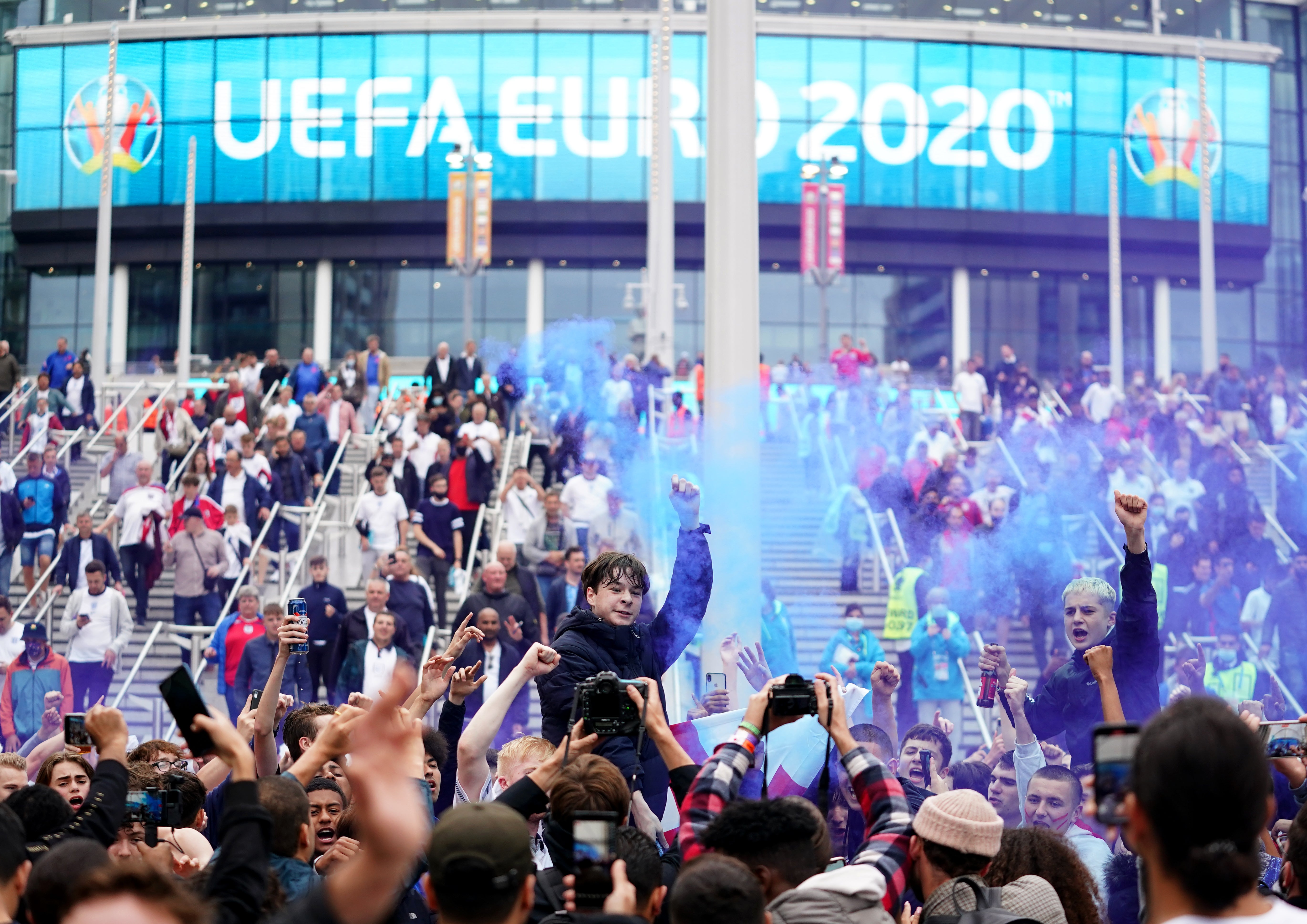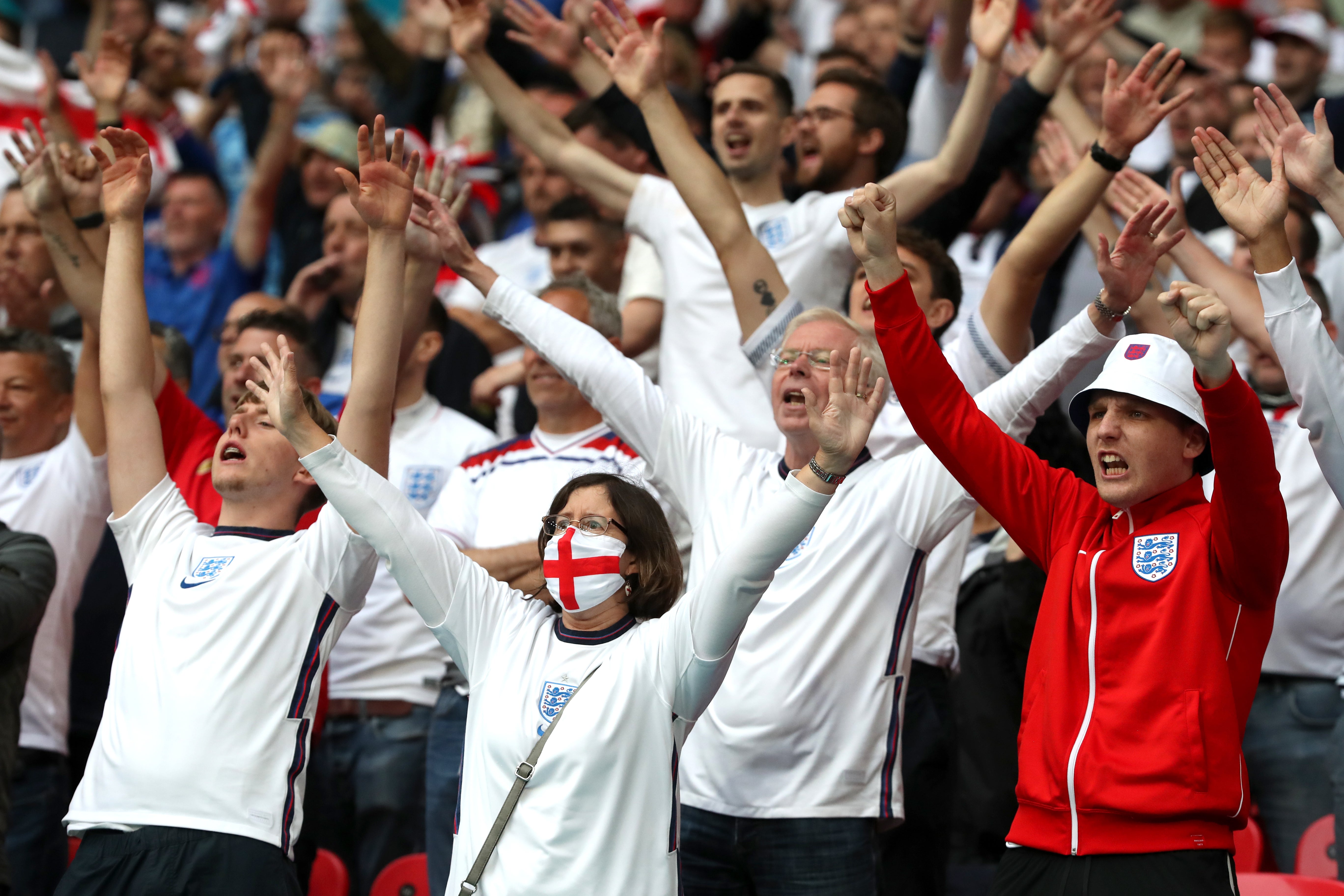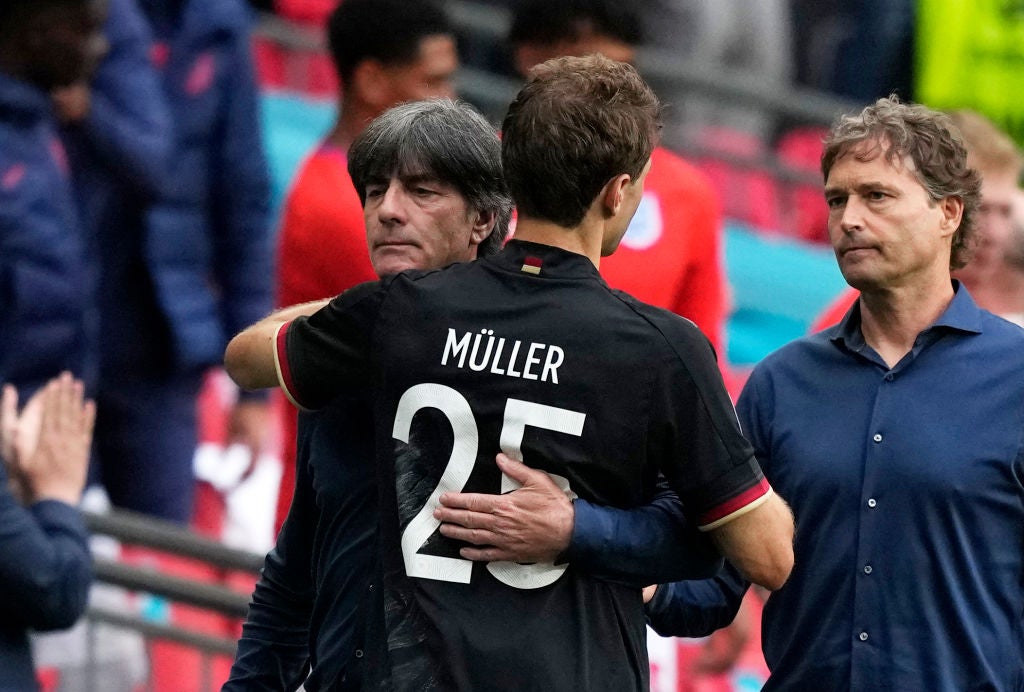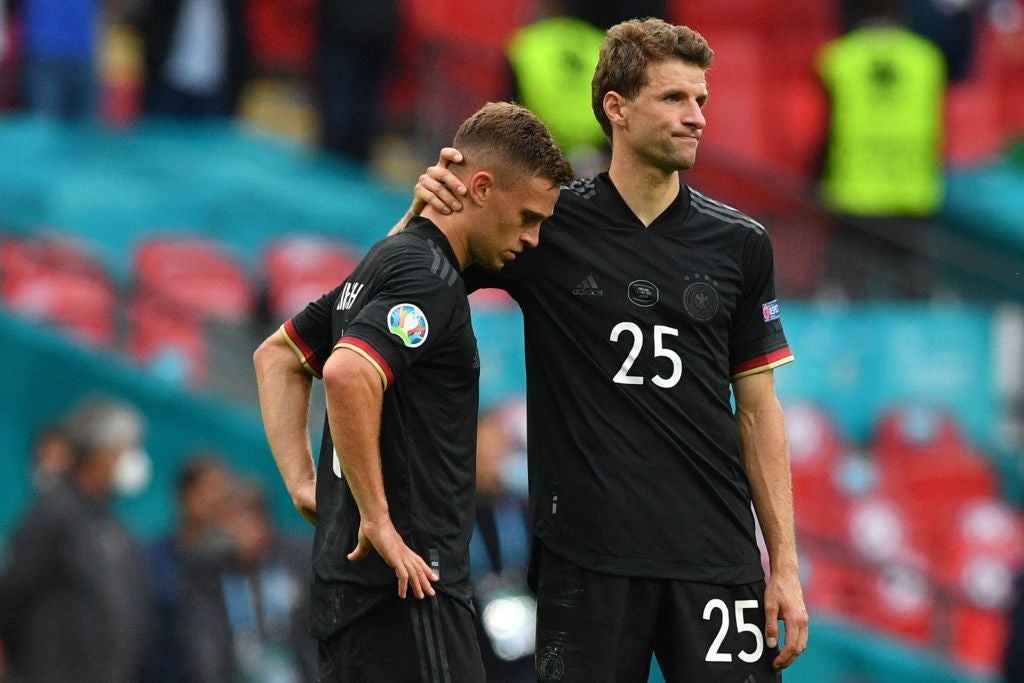Joachim Low’s Germany reign comes to confused and aimless end at Euro 2020
Long before that moment, played out in slow motion with the weight of history along with Germany’s present and future riding on it, there were signs at Wembley that Joachim Low’s side were suffering an on-pitch identity crisis.
In the opening exchanges, when they were in the ascendancy against England, Thomas Muller had his hands on his head in frustration.
It was nowhere near the portrait of anguish he cut on 81 minutes, when he inexplicably dragged a shot wide with so much of Jordan Pickford’s goal to aim for, wasting the opportunity to cancel out Raheem Sterling’s effort.
The Bayern Munich forward was annoyed that Timo Werner and Kai Havertz were not pressing England high and putting more pressure on their back three and goalkeeper.
The body language of the pair suggested they were following a more restrained tactical direction, and when Germany had control of the game in the second half, there seemed to be a continuous conflict of approaches on show.
Recommended
Should they stick, twist, keep it steely, or drum up the chaos that saw them drown on Portugal?
Germany ended up doing none of the above, just slinging aimless long balls to repurposed striker Mats Hummels. There will be the line of thought that if Werner had buried his first-half chance, if Pickford hadn’t pulled off a top-shelf save to deny Havertz, and if Muller applied an expected finish, there would be an altogether different slant on the analysis of the team.
But that would be to completely ignore the fact that it’s been impossible to predict what to expect from Joachim Low’s men. At their pinnacle, a 7-1 scorching of Brazil at the 2014 World Cup was preceded and followed by exacting 1-0 victories. That, though, was a marker of the Turniermannschaft – tournament team – a side that had the winning formula when it mattered most.
Four years later, they slumped out at the group stage of the global showpiece for the first time since 1938.
In recent months, we have seen Germany be tanked by North Macedonia and utterly trounced 6-0 by Spain.
At the Euros itself, we’ve seen them Jekyll and Hyde their way through and out the tournament.
They were fortunate to even face England in the last-16 after the almighty scare and near-disaster against Hungary, in which they were six minutes away from being stone-cold bottom of Group F.
Their most impressive showing, the high-energy roasting of Portugal, was not without its flaws and they were docile in possession against France.
Every Germany game felt like you were watching a different version of them: a series of unknown identity.
Low’s farewell is every shade of disappointing: a lost team, a lost sense of direction. His 15-year tenure that began with a golden group building towards and achieving the ultimate glory ends with the manager looking clueless after his pedigreed resources faded out.
“The last three years were distinguished by difficulties,” Low admitted in his final press conference in charge.
“We had a clear concept on how to go forward from 2018. Because of coronavirus and injuries, it was perhaps hard to get our team playing in an automatic way. There was a lot of change.”
The global pandemic has caused disruption for all teams, but to pin a lack of concrete identity and surety on it is a cop-out.
Low pointed out that “coolness and cleverness” was missing from the squad, which could only come from experience. That is not strictly true: it can be derived from a coherent and convincing plan.
Watching Joshua Kimmich remain on the fringes of the game and restrained when he could have been tasked with making life very uncomfortable for the booked Declan Rice and Kalvin Phillips was bewildering.
As a whole, Germany wore a straitjacket of their own stitching by not playing to any one approach, let alone to their strengths.
The rare flicker of light at Wembley came from Havertz, a reminder that their talent line and powers of rebuilding should not be underestimated.
So it’s goodbye and good riddance in the end to Low, with a waiting game to see if Hansi Flick can reconstruct the mythology of the tournament team.
Source: Read Full Article




